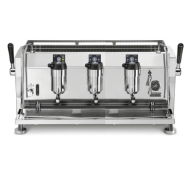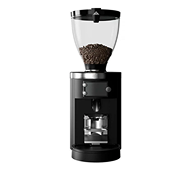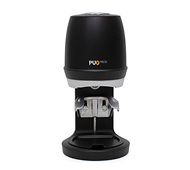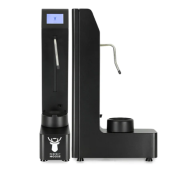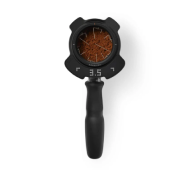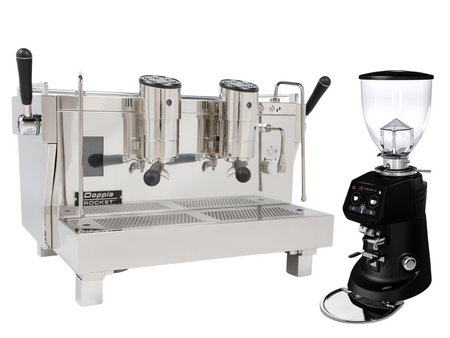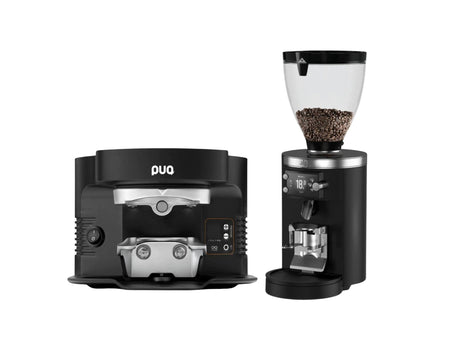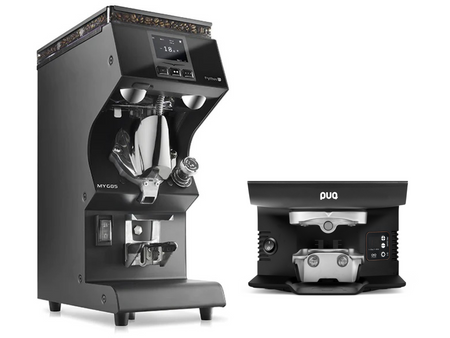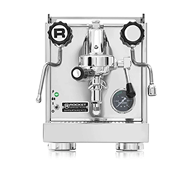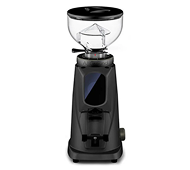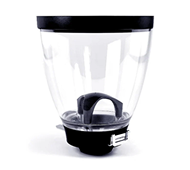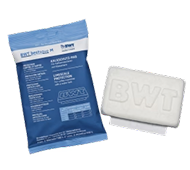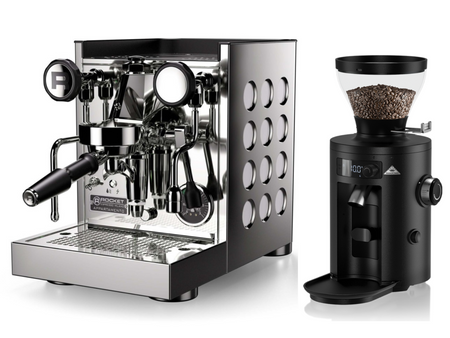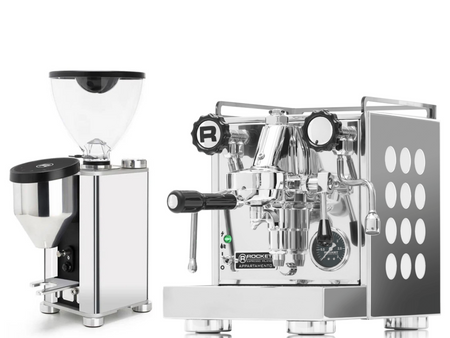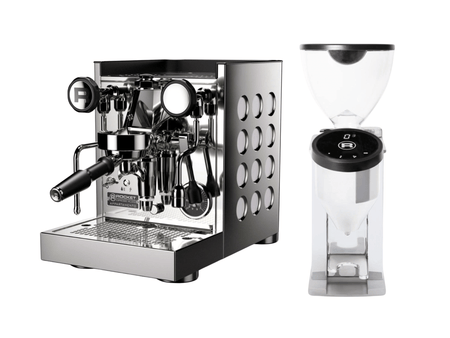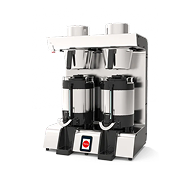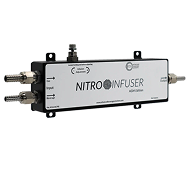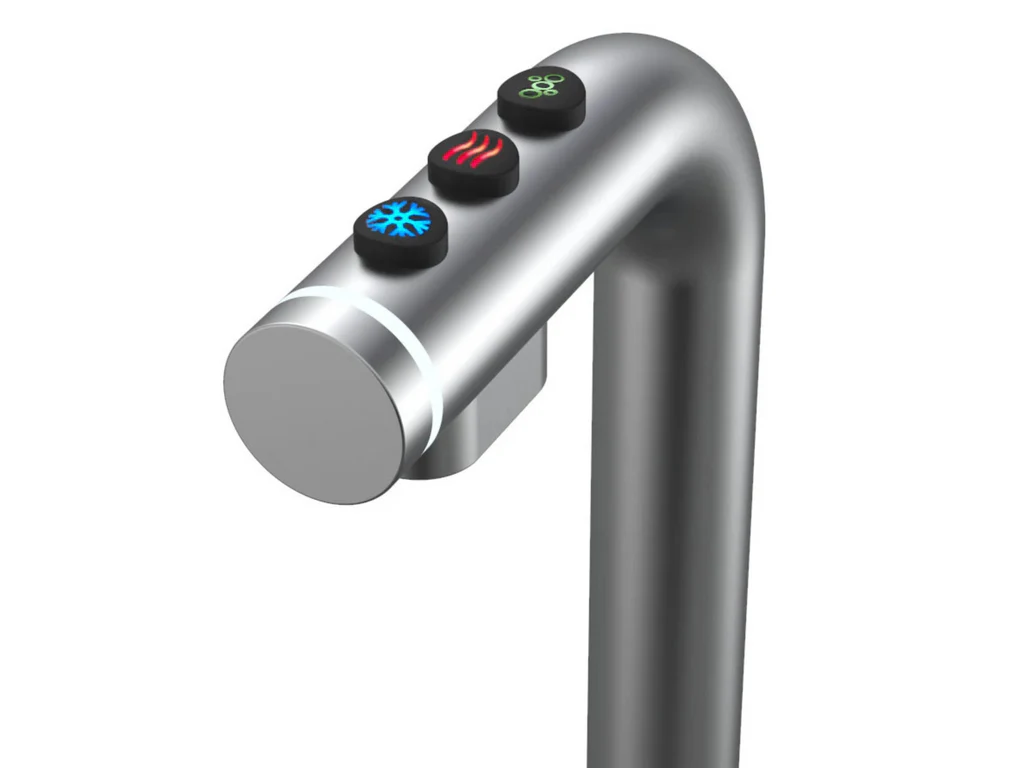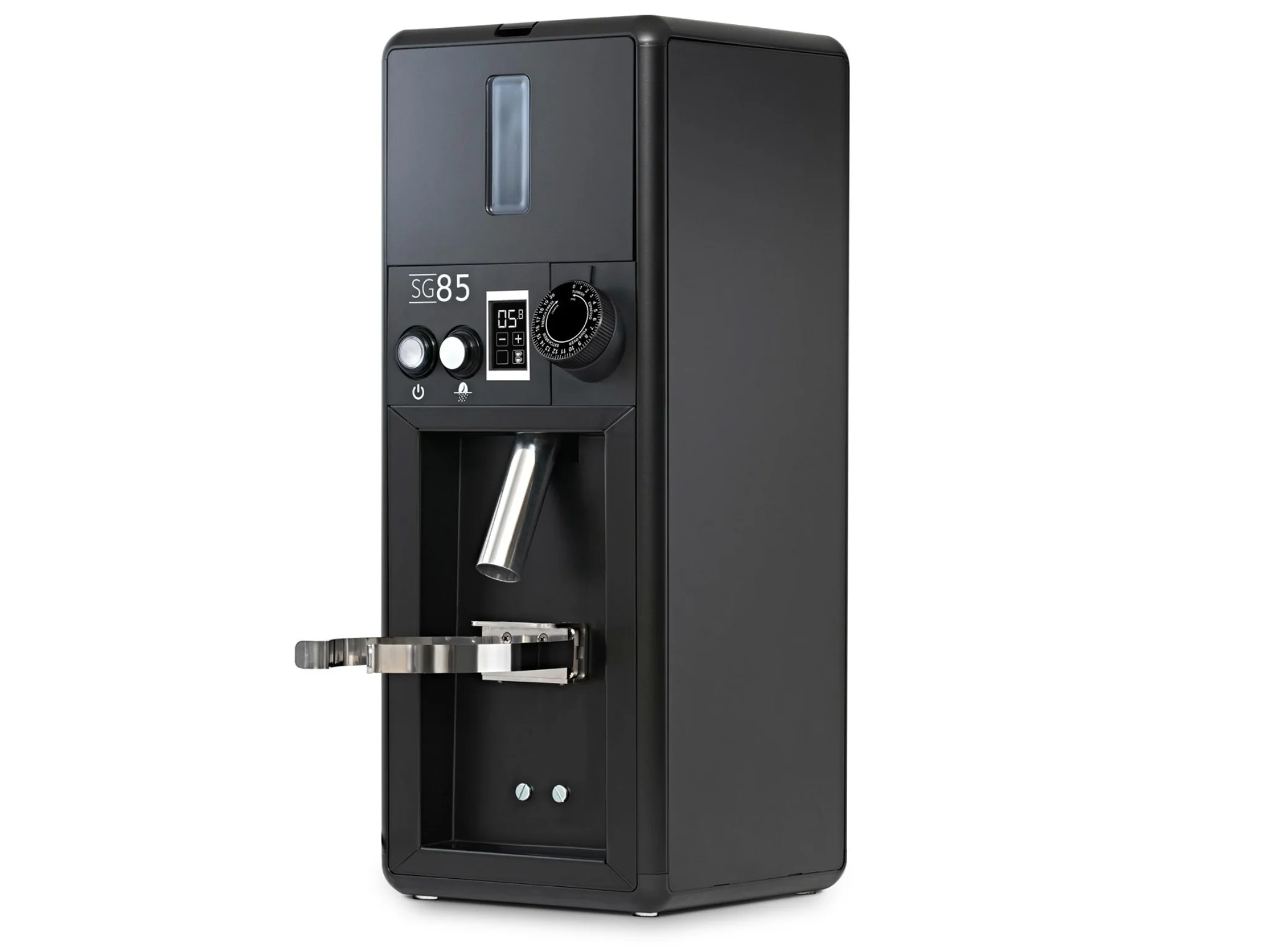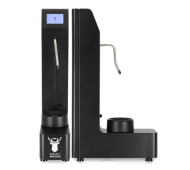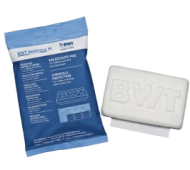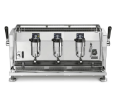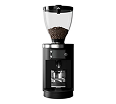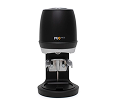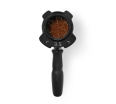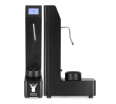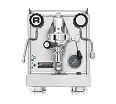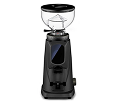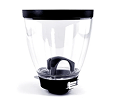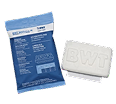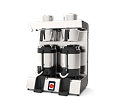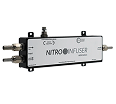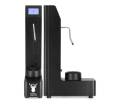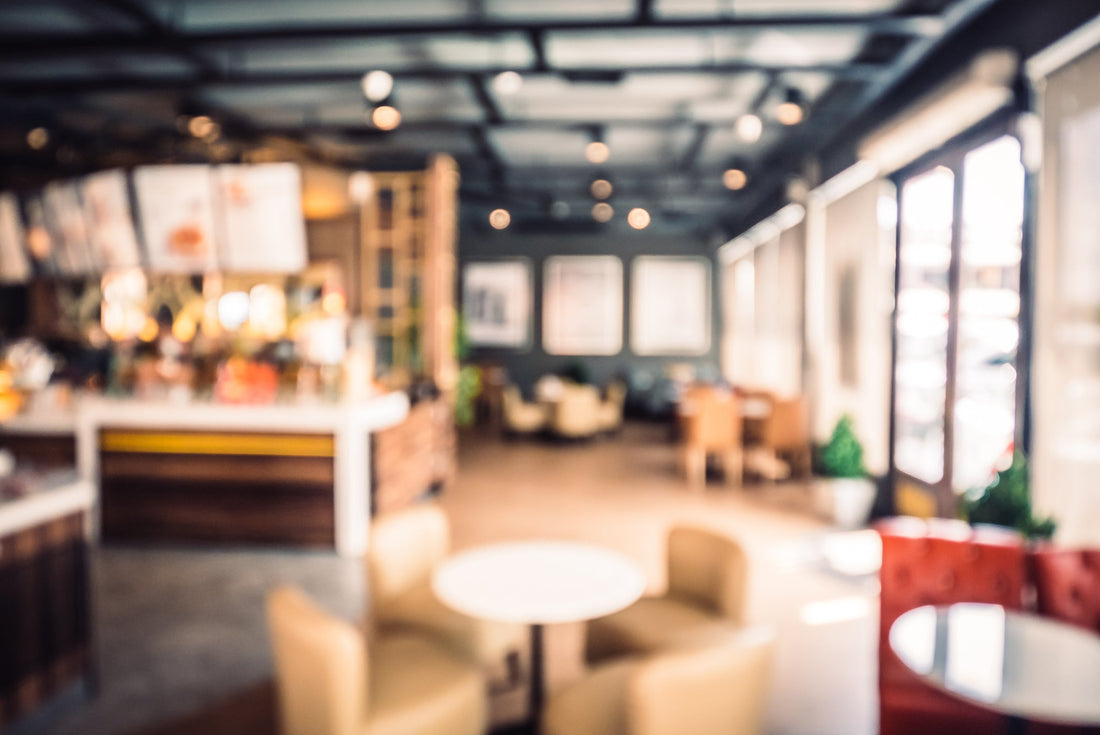Costs. Overheads. Expenses.
Not all aspects of running a coffee shop are quite as enticing as receiving 5-star reviews and word of mouth recommendations. Nonetheless, understanding how much profit should be allocated to critical aspects like rent, staff costs, and equipment allows owners and operators to effectively run their businesses, ensuring sustainable profit and growth. As someone who owned and operated my own mobile coffee business, consulted for budding entrepreneurs, and worked for leading coffee establishments across the globe, I know the ins and outs of owning a coffee shop.
So, how much does it cost to open a coffee shop? The short answer: it depends. Various factors, including the type of business or model, location, and shop size, need consideration when making projections.
How to Plan Your Coffee Shop
In the world of coffee shops, there is no one-size-fits-all model. Instead, diversity is the big driver in how one can stand-out from similar businesses. The type of business is a critical factor that will need some thought , not only from a cost perspective but also from a practical one. What type of business model will I be able to operate effectively? What do we have the resources for? What options does our location and chosen market allow for?
Some example coffee shop types include:
Mobile coffee carts
Premium specialty coffee shops with seating
Cafe/restaurants
Small specialty coffee shops units
Roastery cafes
Mobile coffee trucks

A more traditional mobile ‘bicycle’ coffee cart ready for some trade in a local park.
In the case of my mobile coffee business, initial start-up costs were close to $12,400, a good ballpark figure for this business type. Nonetheless, looking back, there were ways I could have reduced costs, such as not investing in a franchise operation but constructing my own mobile unit and reducing costs allocated to premium filter equipment.
In the case of a physical, stand-alone small shop, the British Business Bank suggests that start-up costs will be anywhere between $25,000 - $125,000 [1], with most new ventures leaning towards the latter. With a physical space, rent will be one of the main considerations, but the space may also need refurbishment, and that’s before arranging equipment, suppliers, and staff.
Whichever direction you choose to go in, get out there and talk to people already running the type of business you want for yourself in order to pick up learnings, understand your chosen value proposition, and save yourself headaches before you’ve spent a penny.
Location, location, location
Choosing the right location for your coffee business can make or break your success. Colin Harmon, in his fantastic book 'What I Know About Running Coffee Shops,' emphasizes a key piece of advice he has learned over the years: "Go big or go small." However, he also notes that suggesting a location is one of the trickiest problems to advise on.
Questions such as rent cost per square foot, estimated turnover per year, and nearby footfall are essential for precise projections, especially when seeking financial assistance from third parties. Regarding rent, a useful rule of thumb is that it shouldn't exceed 10% of projected net turnover [2]. Therefore, a property requiring $25,000 in rent should accommodate a business capable of turning over $250,000. When purchasing or renting the property, be sure to allocate additional funds for legal, broker, and other taxes or fees [3].
Development Costs of a Coffee Shop
When it comes to development costs and utilities, there can be a lot of variation depending on the build site. Two crucial elements are getting permission from the local authorities to build (planning permission) and making sure the building will be structurally sound. To avoid any problems later on, it is a good idea to work with experts whom you trust. Site assessments will typically incur charges ranging from $370 to $1200 [4]. Moreover, a structural engineer's average hourly rate will usually be between $125 and $250, with a report costing approximately $850 [5].
Working with a real estate agent who knows the area well can help you land a good lease. A 'win-win' mindset is also useful for securing the right deal when negotiating with landlords, with consideration given to aspects such as duration, break-out clauses, insurance, and transferability [2].
Finally, when you're hiring contractors to do building work, it's a good idea to also hire a project manager. They'll make sure everything runs smoothly and gets done on time. If you're managing the project yourself, you need to know the best order to do things in and who's responsible for what.
Utilities in a Coffee Shop
In the realm of utilities, factors affecting costs include electricity, water, gas, and internet. For a coffee shop in Austin, Texas, the average energy consumption for electricity is approximately $0.10-$0.13 per kWh, resulting in an annual cost of around $1200 at a medium total usage of 10,000 kWh [6]. When it comes to water, for a coffee shop with an average annual consumption of 100,000 gallons, and a rate of $3 per 1000 gallons, there would be an annual water cost of close to $300 annually [7]. Gas expenses come into play primarily if a proper kitchen or sizable roasting operation exists, with an average cost of $0.1 per kWh for small businesses. Additionally, WiFi costs are said to range from $28 per month to $90, depending on speed, provider, and features [8].
Designing a Coffee Shop
The look and feel of a coffee shop significantly impacts the overall customer experience and should not be treated as an afterthought. Design fees, like other aspects, vary widely, ranging from $100 to $2000 per hour depending on the skills and experience of the designer. Today, subscription sites such as Spoak.com can aid in planning, starting at just $8 per month when paid annually.
Delving deeper into how you want customers to interact with the space can also guide the design process effectively. Consider whether customers will be entering and exiting quickly or if they are likely to linger and spend more time enjoying their brew. From a practical standpoint, thinking about how different key elements (function, aesthetic, and brand) can synergize will ensure a well-designed retail fit-out.
High-Quality Coffee Equipment
Equipment plays a crucial role in determining final product quality. The majority of funds allocated to this aspect should prioritize the espresso machine (or potentially a roaster if opening a sizable roastery cafe).
Today, the market offers a plethora of espresso machines , each with varying pros, cons, and features. For instance, the Victoria Arduino Eagle One is a great choice of machine for conserving energy by heating only the necessary amount of water for extraction, while utilizing spent heat from waste water to preheat incoming water.
Below is a breakdown of the main different types available as well as their ideal use case.
Espresso Machine |
Use Case |
Manual or ‘lever’ espresso machine |
Great for a more traditional Italian-style coffee bar. Good for people experienced in how to make traditional espresso. |
Single group automatic espresso machine |
Ideal for a low volume, non-specialty focused coffee shop when coffee is available on the menu as an extra value product. |
Semi-automatic (2-group) |
Great for coffee professionals who want full control over the extraction without unnecessary features |
Super-automatic espresso machines (also pod or capsule machines) |
Ideal for offices or shops where there isn’t much time to serve and brew coffee manually |
Automatic espresso machines (2+ group, with volumetric automation) |
Essential for high volume specialty focused shops where speed and consistency are needed. |
Dual boiler espresso machines are always recommended for commercial coffee shops. Instead of using a single boiler for both brewing espresso and steaming milk (which can lead to temperature fluctuations), a dual boiler provides much more stability and thus will lead to tastier and more consistent drinks.
Additionally, investing in energy-efficient machinery mentioned previously (which boasts a 23% lower environmental impact) can significantly reduce electricity and water costs, potentially yielding quicker returns on investment compared to older, more energy-intensive options. Although super-automatic machines can reach prices as high as $14,926 each at full cost, there are semi-automatic options available ranging between $3109 and $7463.
Ground coffee is another essential element. An espresso grinder is a critical consideration for coffee shop owners, particularly regarding the consistency of grind size distribution , which directly impacts quality. Like espresso machines, there are a wide array of grinder options available, with two main categories being grinders equipped with conical burrs or flat burrs. Flat burrs are generally considered more consistent and thus more expensive, whereas conical burrs are less consistent but more affordable.
Examples of high-quality espresso grinders include the Mahlkonig EK43 ($3926), Mazzer Robur S Electronic ($3582), and Anfim SPII + OD ($2283).
Sourcing Inventory for the Coffee Shop
Ensuring consistency is just as important as ensuring quality. Therefore, identifying reliable partners and suppliers is paramount. For instance, when selecting a coffee supplier, evaluating factors such as their longevity in the business, the quality of roast, and their proximity as a local roastery versus potential shipping times aids in making informed decisions.
While coffee boasts high profit margins, it's essential to recognize that this advantage is realized in shops where the volume of coffee sales is sufficient to cover taxes and additional costs deducted from gross profit. Moreover, for items like takeaway coffee, additional expenses such as lids and cups must be factored in.
Consider this example costing for one takeaway coffee sold:
| Price | $4.00 |
100% |
| Staff Costs | $1.20 |
30% |
| Electricity, Water, Gas | $1.20 |
30% |
| Rent | $0.36 |
9% |
| Lid | $0.04 |
1% |
| Cup |
$0.12 |
3% |
| Coffee | $0.48 |
12% |
| Milk | $0.12 |
3% |
| Total Expenses | $3.52 |
88% |
| Net Profit | $0.48 |
12% |
Additionally, for purchases like milk, which constitute a significant portion of drinks like lattes and cappuccinos, it's important to note that prices can fluctuate due to economic changes. In any case, tracking forecasted and actual sales aligned with regular costs is essential for sound financial management.
After deducting all operating costs from the net profit, it becomes evident that there isn't a substantial amount remaining for the future longevity and operation of the business. Therefore, volume plays a crucial role in ensuring the longevity and long-term success of a coffee shop.
Staffing & management
Staff costs rank among the highest expenses alongside services and other expenses, underscoring the importance of investing in the right personnel. Businesses should strive to keep staff costs to less than 35% of turnover, and in any case, they shouldn’t exceed 50% of total overheads.
Establish your desired business culture and train staff to align with it. Alternatively, hiring highly skilled individuals may overlook customer service or practical aspects of coffee shop management. Regardless, understanding the ideal candidate for the business is crucial to fostering their growth into essential team members and valued employees.
Marketing, branding and merchandise
When it comes to marketing and branding, costs can include creating branded merchandise, running social media campaigns, creating paid ads, developing a website, and carrying out email marketing. Regardless of the method, having some form of internet presence is important for any business, whether online or physical. As a general rule, experts suggest that your cafe marketing budget should be between 3% and 6% of your sales.[12]
If opting for the franchise route to leverage a well-known brand name, trademark, and business model, you’ll be required to pay for the right to do so. Initially, this can reduce market entry risk if you have the necessary funds. However, total costs for a new franchise can amount to $373,000 in some cases.[13] This figure includes the franchise fee, working capital, and all startup costs, but excludes royalty fees. The positive aspect is that an estimated 93% of franchise-run units were reported to be profitable in 2018, a significantly higher rate compared to independents.[14]
Emergency funds
When it comes to life, things don’t always go as planned. That’s why it’s useful to consider having an emergency fund available (ideally 3-6 months) in case any problems arise. The same idea can be applied to a small business such as a coffee shop.
Whether the business faces cash flow problems, emergencies like damaged property or stolen goods, or even timely opportunities for business growth, the owner can gradually build this emergency fund by trimming expenses and setting up regular contributions. Overall, having an emergency fund is crucial for ensuring business solvency and stability during unexpected challenges.
Coffee Startup Calculator
Need more ideas about future costs for your shop? The coffee start calculator below is here to help. Simply enter your coffee shop’s data into the relevant fields, such as daily sales, prices of products, and cost of goods sold. The calculator will then automatically process the information, providing you with detailed projections and financial statements.
References:
- https://www.startuploans.co.uk/business-guidance/open-coffee-shop/
- What I Know About Running Coffee Shops, Colin Harmon
- https://www.thelawsuperstore.co.uk/help-and-advice/the-costs-of-buying-commercial-property
- https://www.self-build.co.uk/planning-hidden-costs/
- https://www.checkatrade.com/blog/cost-guides/structural-engineer-costs/
- https://bionic.co.uk/business-energy/guides/average-energy-usage-for-businesses/
- https://www.businesselectricityprices.org.uk/water-prices/
- https://startups.co.uk/broadband/business-broadband-price-comparison/
- https://www.quora.com/How-much-do-interior-designers-charge-to-design-a-coffee-shop
- https://pos.toasttab.com/uk/blog/on-the-line/how-much-does-it-cost-to-open-a-cafe
- https://esquirescoffee.co.uk/news/cost-uk-franchise/
- https://www.thebfa.org/expert-advice-zone/the-benefits-of-franchising/
